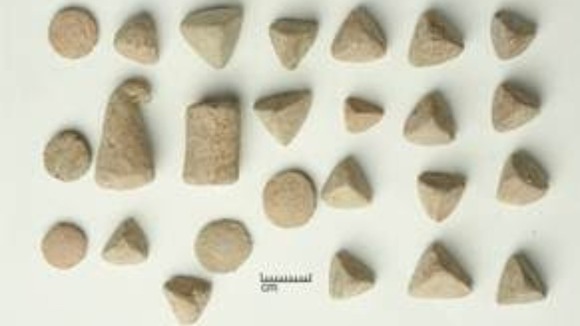Archaeologists from Cambridge University have discovered a prehistoric form of book keeping continued even after our ancestors could read and write.
The discovery was made at an archaeological dig in southeast Turkey. There scientists uncovered a large number of clay tokens which date from a time when writing was commonplace, and two thousand years after it was believed this form of book keeping had died out.
Researchers have revealed that one theory is that different types of tokens represented units of various commodities such as livestock and grain and would be exchanged and later sealed in more clay as a permanent record of the trade – essentially, the world’s first contract.
However, recent excavations at Ziyaret Tepe – the site of the ancient city Tushan, a provincial capital of the Neo-Assyrian Empire – have unearthed a large quantity of tokens dating to the first millennium BC: two thousand years after ‘cuneiform’ – the earliest form of writing – emerged on clay tablets.
Lead researcher John MacGinnis from Cambridge’s MacDonald Institute for Archaeological Research said that complex writing didn’t stop the use of the abacus, just as the digital age hasn’t wiped out pencils and pens.
Archaeologists say that, while cuneiform writing was a more advanced accounting technology, by combining it with the flexibility of the tokens the ancient Assyrians created a record-keeping system of greater sophistication.
While the majority of the cuneiform tablets found with the tokens deal with grain trades, it’s not yet known what the various tokens represent. The team say that some tokens likely stand for grain, as well as different types of livestock (such as goats and cattle), but – as they were in use at the height of the empire – tokens could have been used to represent commodities such as oil, wool and wine.
Agencies/Canadajournal
 Canada Journal – News of the World Articles and videos to bring you the biggest Canadian news stories from across the country every day
Canada Journal – News of the World Articles and videos to bring you the biggest Canadian news stories from across the country every day



